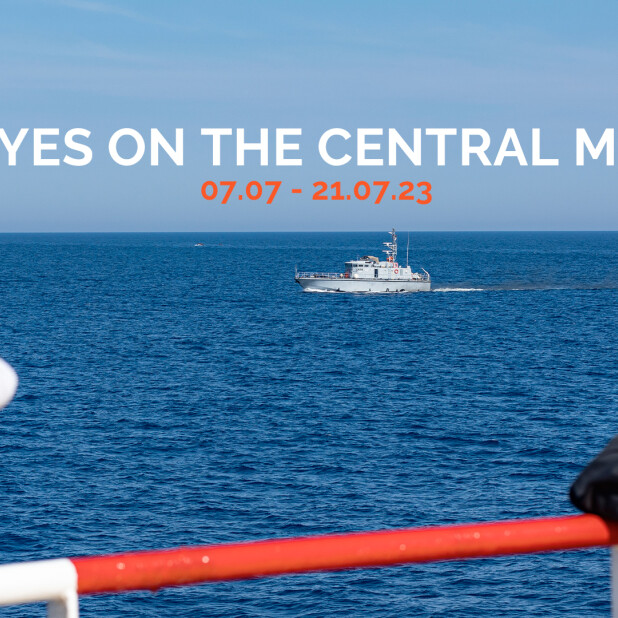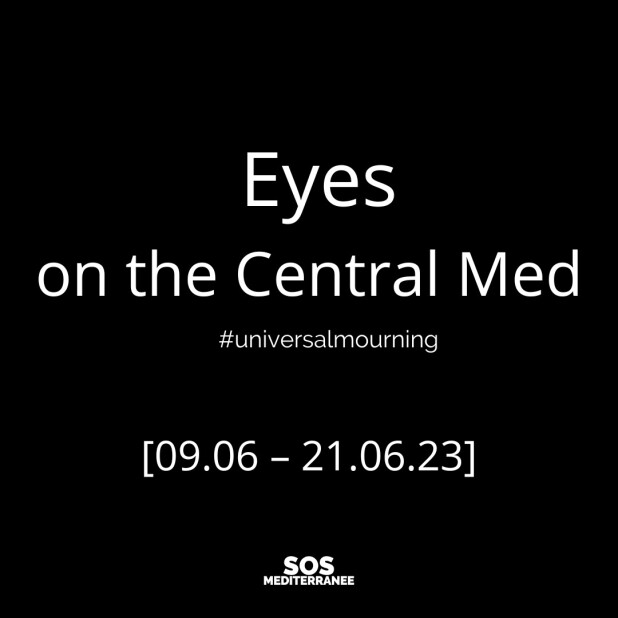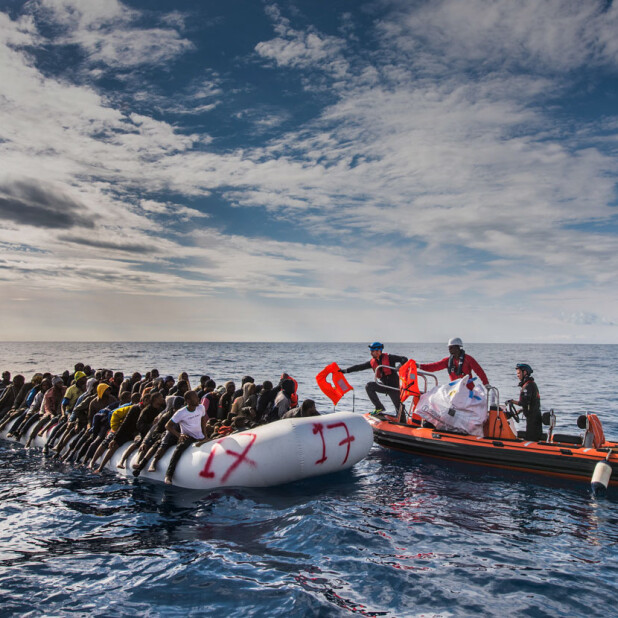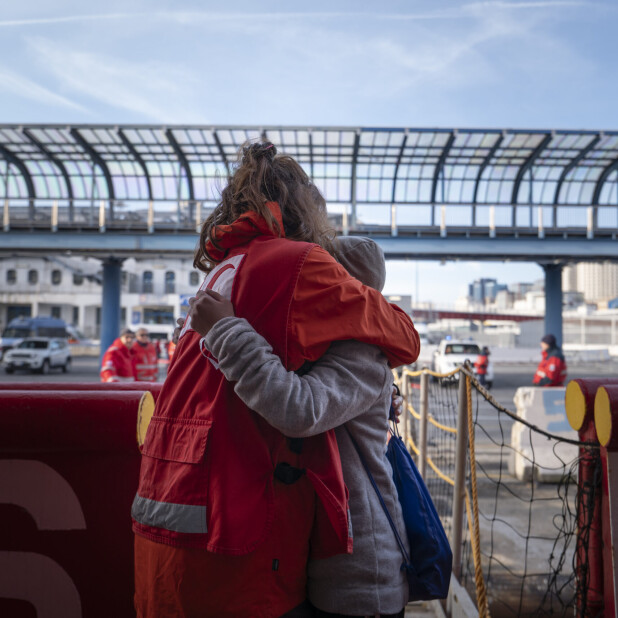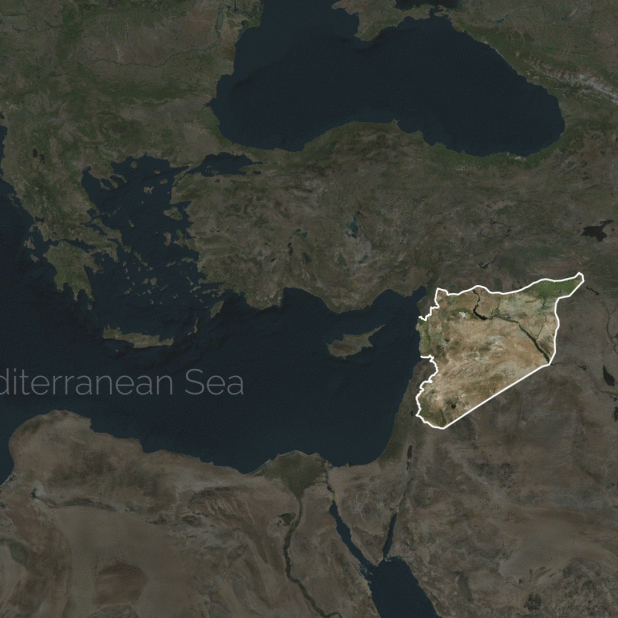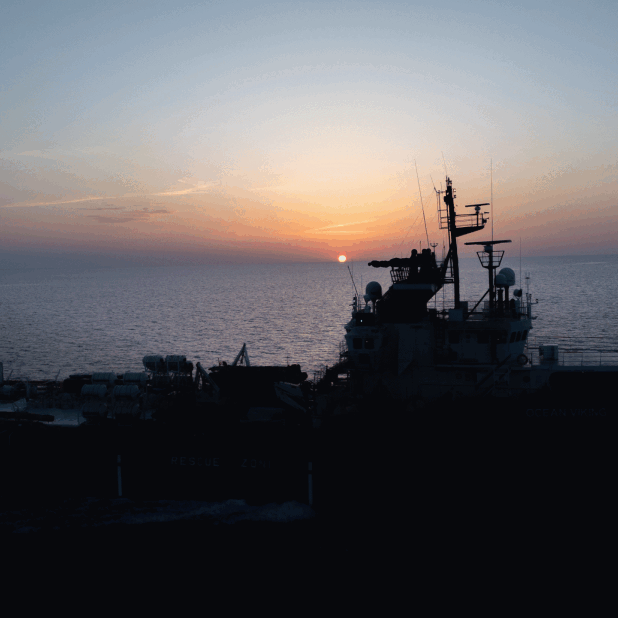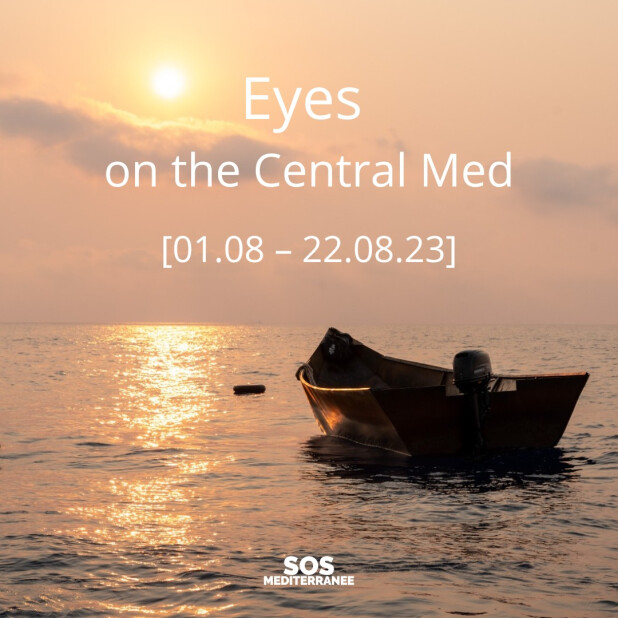
[14.03 – 27.03.23] The following publication by SOS MEDITERRANEE intends to shed light on events which unfolded in the central Mediterranean in the past weeks. It is not intended to be exhaustive, but rather to provide a general update on maritime search-and-rescue-related matters occurring in the area we have been operating in since 2016, based on public reports by different NGOs, international organisations and the international press.
A terrible weekend: gun shots fired over NGO ship and over people in distress, people forcibly returned to Libya and rescue ship detained
In the morning of March 25, Ocean Viking of the NGO SOS MEDITERRANEE, was alerted to a boat in distress in International waters off Libya by civil emergency hotline Alarm Phone. While proceeding to the distress case, the Libyan coastguard patrol vessel 656 arrived on the scene, dangerously approaching the Ocean Viking. All attempts by the Bridge’s team to contact the Libyan coastguard vessel via VHF went unanswered while the crew of the Libyan coastguard patrol vessel started behaving aggressively, threatening with guns and firing gunshots in the air. As the safety of the crew was under threat, Ocean Viking sailed away from the scene at full speed, while the Libyan coastguard continued to fire shots. Civil surveillance aircraft Seabird 2, operated by the NGO Sea Watch, monitored the distress case. Seabird 2 later confirmed spotting people fallen overboard from the rubber boats and recovered afterwards. A total of approximately 80 people were eventually intercepted by the Libyan coastguard and forcibly returned to Libya. Between March 19 and March 25 only, 448 people were forcibly returned to Libya according to the International Organisation for Migrations (IOM).
During the early morning of March 24, Geo Barents of the NGO Médecins Sans Frontières (MSF) performed a rescue of 190 people from a wooden boat with the assistance of Louise Michel who first stabilised the boat and distributed lifejackets. Shortly after, Bari, Italy, was assigned as a port of disembarkation, 1100kms away from Geo Barents. All survivors could eventually disembark in Bari on March 26.
Later in the day, the rescue ship Louise Michel evacuated 78 people on a wooden boat in distress. During the rescue operation, the Libyan coastguard arrived on the scene, causing “dangerous interference”, fortunately all the shipwrecked persons could eventually be brought onto Louise Michel. The ship evacuated 38 other people from a metal boat shortly after. During the night of March 24, the crew rescued two more metal boats, bringing to safety 67 people. One of the boats had capsized and people had to be recovered from the water. Three unconscious persons were medically evacuated. During the disembarkation of the 180 survivors in Lampedusa on March 25, the crew was orally informed by the Italian authorities of the detention of the ship in light of the new Italian decree-law. On March 26, Louise Michel received the official notification that the ship was detained for 20 days by the Italian authorities. After Geo Barents, this is the second ship being detained since the ratification of the Italian decree-law in January 2023.
During the night of March 24 and morning of March 25, Life Support of the NGO Emergency, performed three more rescues, bringing to safety 161 survivors. Ortona, Italy, was designated as a port of disembarkation, reached on March 28.
Five more deadly shipwrecks and interceptions off Tunisia as EU concerns for the economic and social situation of the country grow
According to Al Jazeera, between March 22 and March 26, at least five boats have sunk off the southern Tunisian city of Sfax, leaving 67 people missing and 9 dead. During the same period of time, Al Jazeera also stated that the Tunisian coastguard had intercepted about 80 boats trying to flee the coast and placed in detention more than 3,000 people. According to the Tunisian Agency Press, the Tunisian coastguard already prevented 18 boats trying to leave the country on March 18 and brought back 635 people to shore.
On March 20, the EU Foreign Affairs chief Josep Borrell stated that “the situation in Tunisia is very, very dangerous” and warned of repercussions on Europe as an economic or social collapse would allegedly cause a surge of departure from Tunisia. He further declared that this situation “should be avoided”.
The surge of arrivals in Italy in comparison of last year continues
According to the data of the Italian ministry of Interior, over 7,000 people arrived in Italy in the past two weeks, mainly between March 23 and March 27. Boats reportedly left from Turkey, Libya and Tunisia. Some of people arrived autonomously, others were rescued by Italian coastguard, or SAR NGO ships (531 people). On March 27, the Italian coastguard rescued approximately 650 people in a single rescue operation in Calabria.
Continuous EU support given to the Libyan authorities as UN report shed light on their responsibilities in crimes against humanity, triggering UN condemnations
On March 20, the Operation EUNAVFOR MED IRINI started three years ago was renewed for the following year with a budget of approximately €16 million. The objectives of the European military mission are to fight against illegal weapons trafficking from Libya and against illicit fuel networks and human trafficking, as well as to train the Libyan coastguard. On March 25, Italy reportedly delivered two fast response boats to the Libyan Coastal Security (GACS).
However, on March 27, IOM expressed concerns on the aftermath of the incident between Ocean Viking and the Libyan coastguard on March 25, stating that “any support to Libyan entities operating at sea should be contingent on the human rights of migrants in the country being respected and upheld”. A new report was released that day by the UN Fact-Finding Mission in Libya documenting crimes against humanity committed against Libyans and migrants throughout the country since 2016 and shed light on the role of the Libyan coastguard and of the EU in this context.
The same day, on March 27, the journalist David Carretta questioned the EU Commission about the event of March 25 involving the Libyan Patrol Vessel 656, given to the Libyan coastguard by Italy as part of the EU support to Libya. The EU Commission spokesperson Peter Stano stated that they will reconstruct the events first and then talk about the necessary follow-up.
Credits: Jérémie Lusseau / SOS MEDITERRANEE

